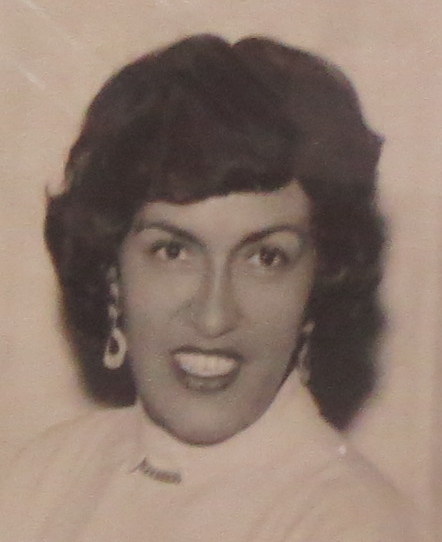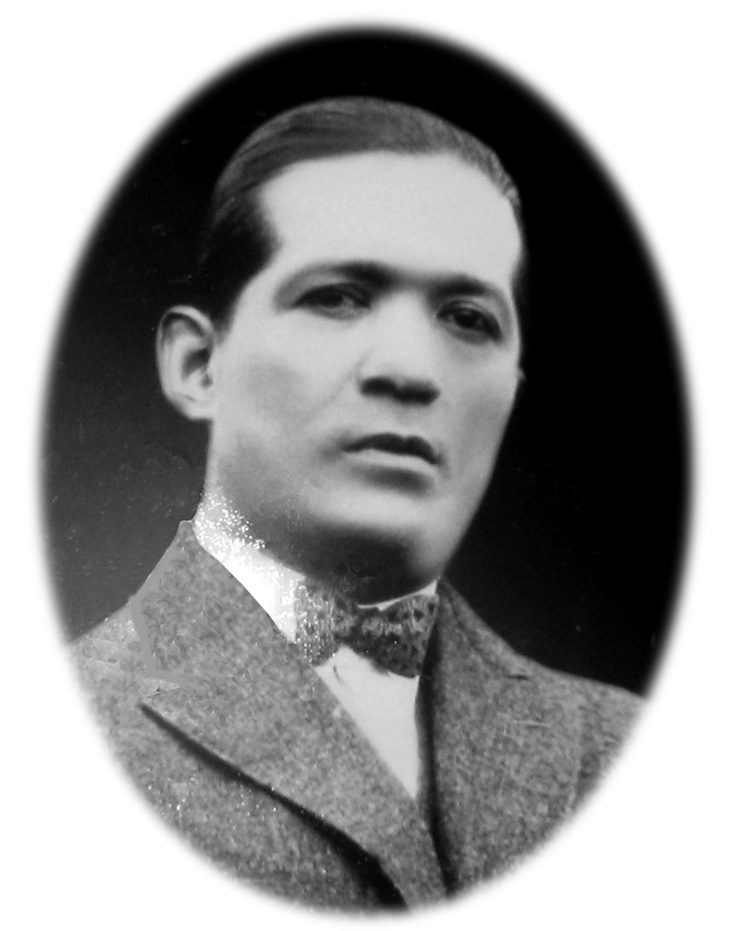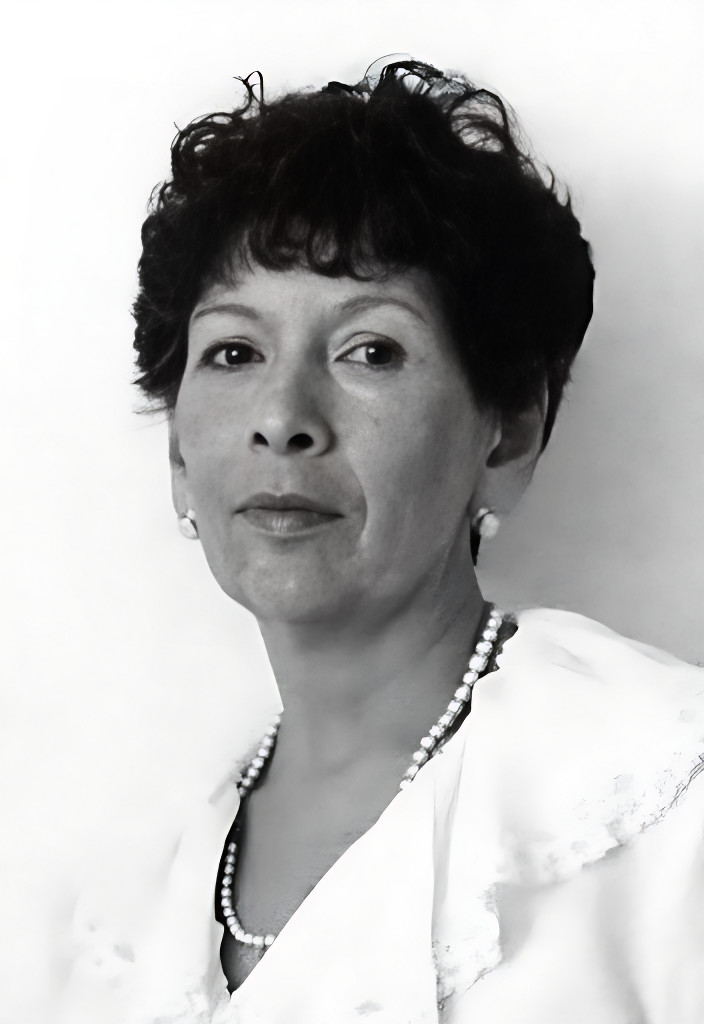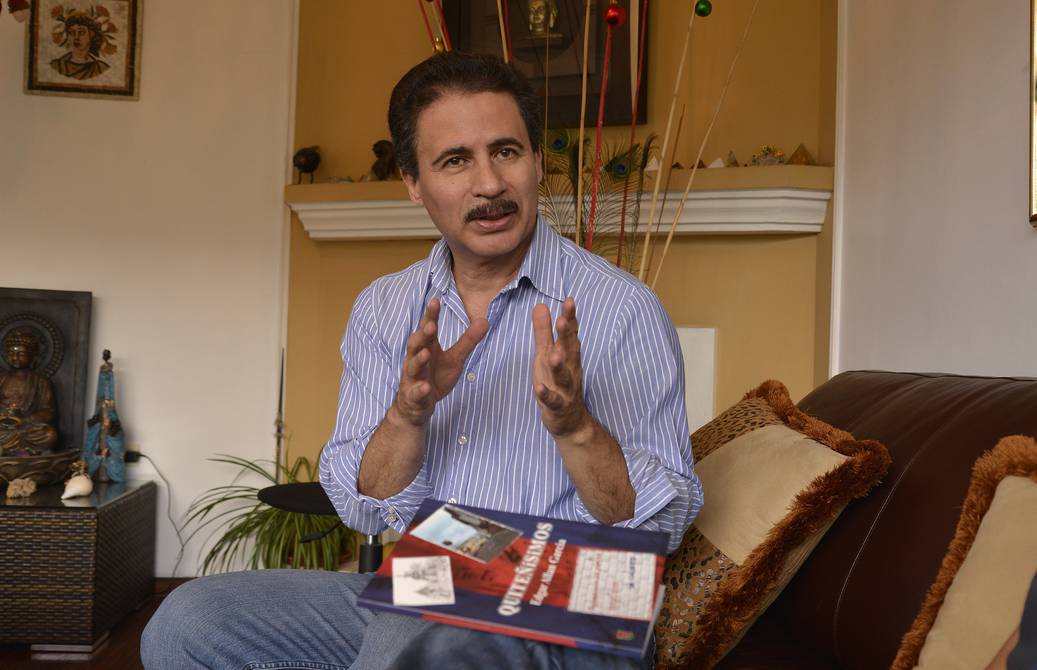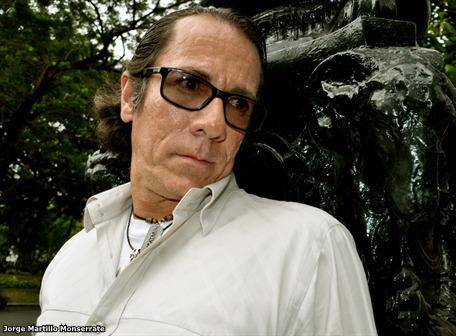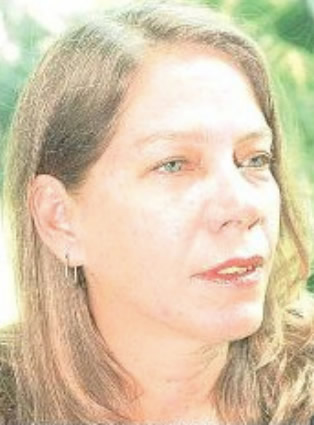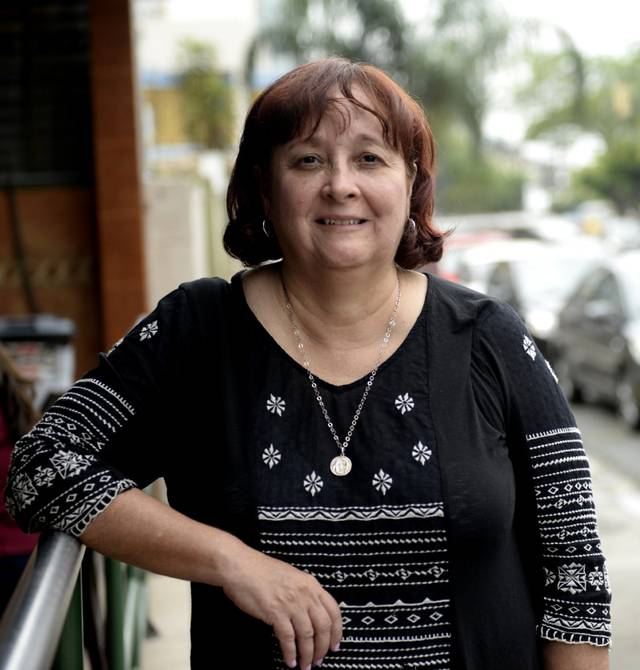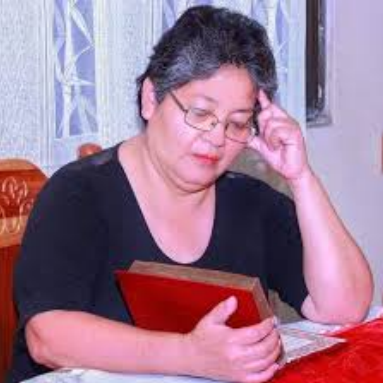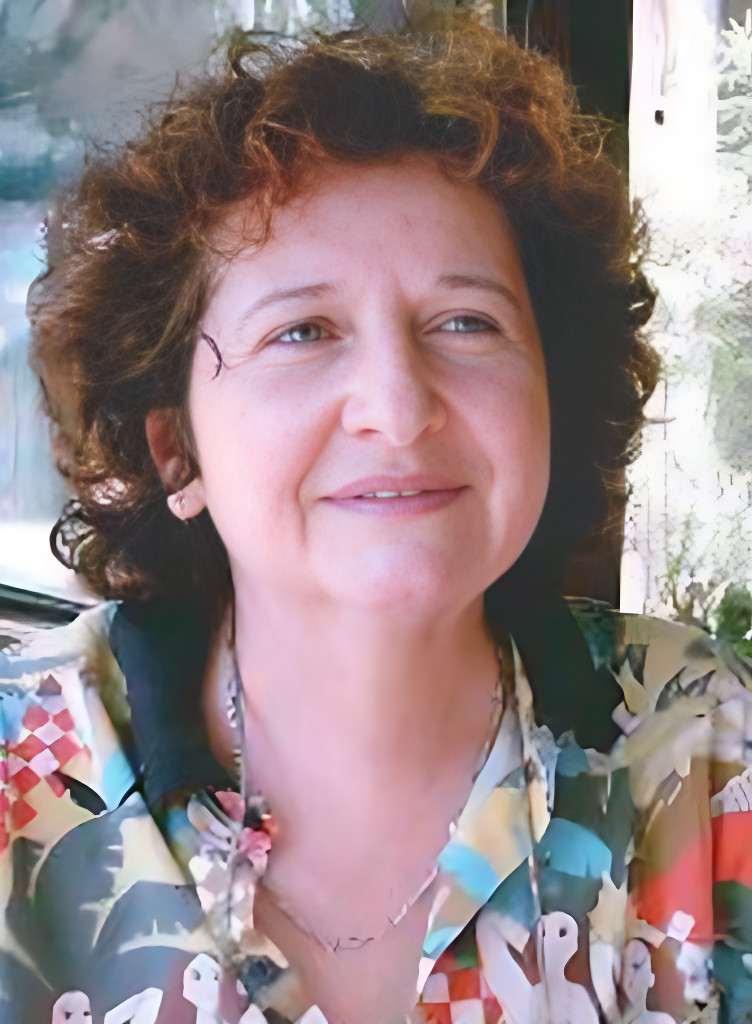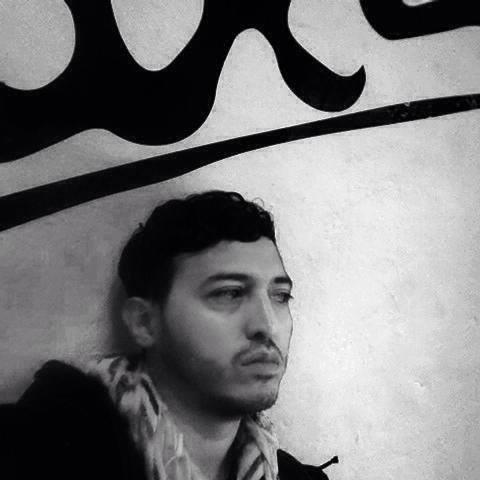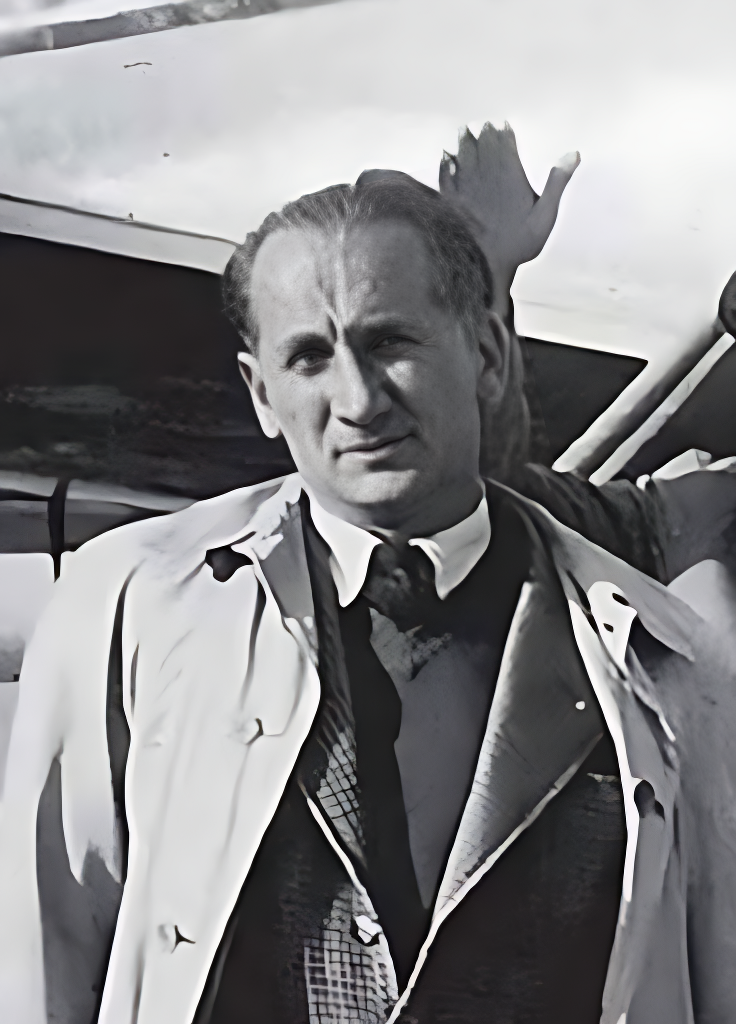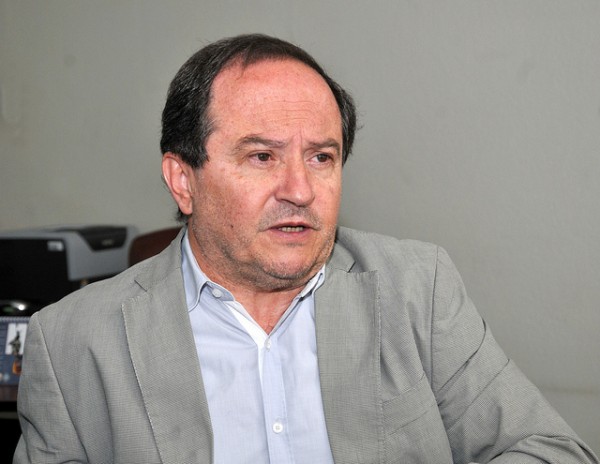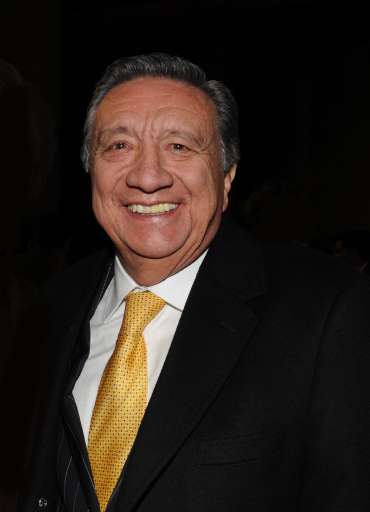Eugenia Tinajero Martínez (Quito, January 10, 1922 – April 6, 2009) was an Ecuadorian painter, university professor and writer. Tinajero Martínez hailed from a distinguished lineage, being the descendant of renowned Ecuadorian authors Luis A. Martínez and Juan Leon Mera. Her best-known literary work is “Leyendas indígenas” (1954), a collection of stories that focus on the Indian motif. She spent several years in the United States and was a respected professor at Harvard University, where she had previously studied. The majority of her artwork is held in both public and private collections in the Ecuadorian cities of Quito and Ambato.
Continue reading “Eugenia Tinajero Martínez”Posts
Carmen Inés Perdomo Gutiérrez
Carmen Inés Perdomo Gutiérrez (Esmeraldas, 1973) is an Ecuadorian poet and journalist. She has contributed to magazines and periodicals in Ecuador. She is the author of three poetry collections: “Silencio en llamas” (2005), “Naufragio del Canto” (2008), and “Tempestad en la Floresta” (2013). Her poems have also been included in several national and international poetry anthologies. She obtained third place in the Gabriela Mistral women’s poetry contest. During the 2007–2009 biennium, she held the position of secretary of the Ecuadorian Society of Writers (SEDE).
Continue reading “Carmen Inés Perdomo Gutiérrez”Juan Pablo Muñoz Sanz
Juan Pablo Muñoz Sanz (Quito, March 13, 1898 – Quito, August 5, 1964) was an Ecuadorian writer, music critic, composer, and pianist. In 1944, he assumed the role of rector at the Quito National Conservatory, simultaneously taking charge of its orchestra, which later evolved into the esteemed National Symphony Orchestra. Additionally, Juan Pablo shared his expertise as a professor of Spanish, literature, and philosophy. Among his books are: “La Música en Quito” (1934), “Glosario de Amiel” (1936), “La música ecuatoriana” (1938), and “Nacionalismo y americanismo musical” (1938).
María Alban Estrada
María Alban Estrada (Guayaquil, February 28, 1939) is an Ecuadorian writer, investigative journalist, and editor. Her book “Con dios todo se puede: La invasión de las sectas al Ecuador” (written with Juan Pablo Muñoz) was the best-selling book in Ecuador in 1987. She worked as the editor-in-chief of Vistazo magazine between 1982 and 1985. She also held the positions of director of the investigative unit of Diario Expreso and general editor of Vistazo magazine. In 1988 she was awarded a scholarship, which allowed her, as a special observer, to attend investigative journalism schools in New York, Missouri, Kansas, Washington D.C., and San Francisco. She was also an active member of Investigative Reporters and Editors (IRE), a grassroots nonprofit organization headquartered in Columbia, Missouri dedicated to improving the quality of journalism by educating, empowering and connecting journalists across the globe.
Continue reading “María Alban Estrada”Edgar Allan García
Edgar Allan García (Guayaquil, December 17, 1958) is an Ecuadorian writer and cultural promoter. He has 74 books to his credit, including short stories, poetry, novels, biography, nonfiction, essays and children’s literature. His works have been published in Ecuador, Spain, Peru, Mexico and Argentina. His book “Leyendas del Ecuador” is read in primary and secondary schools while his young adult novel “El rey del mundo” was chosen as part of Argentina’s national reading program. His poetry and short stories have also been included in several anthologies, and in 2010 he was included in Jaime García Padrino’s “Great Dictionary of Latin American Authors of Children’s and Youth Literature.” He also serves as the director of Ecuador’s José de la Cuadra National Book and Reading Plan. Some of his stories have been translated into French.
Continue reading “Edgar Allan García”Juan Carlos Cucalón
Juan Carlos Cucalón (Guayaquil, 1963) is an Ecuadorian short story writer and playwright. In 2007 he won first place in the Pablo Palacio Short Story Biennial with his story “Miedo a U2” [Fear of U2]. His book of short stories “Surcos obtusos” won the 2009 edition of the Luis Félix López National Literature Contest. Among the themes of the book are homoeroticism and masculinity in Latin America. In 2010, he premiered his play “Exododedosexos,” whose plot follows two transgender women named Malva Malabar and Simoné Bernadette who prepare to stage a play by Tenesse Williams. Cucalón is openly homosexual, and throughout his career he has published numerous stories featuring characters of various sexual orientations.
Continue reading “Juan Carlos Cucalón”Gilda Holst
Gilda Holst Molestina (Guayaquil, 1952 – Guayaquil, October 22, 2024) was an Ecuadorian writer and university professor. Known for her use of irony and humor, her works addressed themes of gender inequality and societal norms. She authored three notable short story collections: Más sin nombre que nunca (1989), Turba de signos (1995), and Bumerán (2006), as well as the novel Dar con ella (2000). Her work was included in several anthologies, including Cruel Fictions, Cruel Realities: Short Stories by Latin American Women Writers (1997), edited and translated by Kathy S. Leonard. In 2021, Editorial Cadáver Exquisito released her Obra completa (Complete Works). Holst was also a key figure in Ecuadorian literature, a professor at the Universidad Católica de Santiago de Guayaquil, and director of its School of Letters.
Continue reading “Gilda Holst”Maritza Cino
Maritza Cino Alvear (Guayaquil, 1957) is an Ecuadorian poet and university professor. She has published 8 poetry collections and a collection of 23 short stories entitled “Días frívolos” [Frivolous Days]. Her poems have appeared in Latin American and Spanish magazines, as well as U.S.-based online magazines. In addition, some of her poetry has been translated into English, Italian and French. Her latest poetry collection “El temblor de los huertos” [The Tremor of the Orchards] was published in 2022.
Continue reading “Maritza Cino”Maria Cecilia Corella
Maria Cecilia Corella Ramírez (Daule, September 9, 1967) is an Ecuadorian writer, poet, and cultural promoter. She has authored five books: “Poesías amatorias,” “Poemas Corellanos,” “La voz de los Daulis,” “Versos caminantes,” and “Daulis.” From 1985 to 2015, she was the editor of La Voz de los Daulis, a literary, historical, and cultural magazine. She hosts a local cultural TV show Viernes de Cultura y literatura on DV Daule Vision. She is presently the president of the Corporación Cultural Daule, whose cultural event, Sofá Cultural, aims to promote Daule’s literature, dance, music, and other local art forms. She is a member of the World Hispanic Union of Writers and the Union of Writers and Artists of Tarija.
Continue reading “Maria Cecilia Corella”Olga Caro
Olga Caro Alda (April 25, 1949) is a French author, Hispanist, researcher, university professor, and lecturer. She holds a PhD in the Spanish language and has been teaching Latin American literature and culture at the Université du Maine in Le Mans, France. She specializes in the works of Ecuadorian novelist Jorge Icaza. In 1994, her interest in Icaza took her to Ecuador, where she extensively researched the author by exploring libraries and connecting with Icaza’s widow, Marina Moncayo. Marina graciously welcomed her into her home and provided access to Icaza’s personal archives, which Caro meticulously studied, photocopied, and photographed. During her research, Caro discovered two of Icaza’s long-lost stories, “Patrón Rafico” (published as “Capítulo para una novela inédita” in 1945) and “Fantasía reincidente” (1960). Impressed by her findings, Caro shared the news with Marina, who exclaimed, “It’s incredible, Jorge was looking for them to publish them and he couldn’t find them!” With the approval of Icaza’s daughters, Fenia and Cristina, Caro published a book in 2005 titled “Nouvelles de Jorge Icaza et études critiques” [Short stories by Jorge Icaza and critical studies]. The book featured the two rediscovered stories and included eight essays that Caro had previously written about Icaza.
Continue reading “Olga Caro”Luis Alberto Bravo
Luis Alberto Bravo Piña (Milagro, 1979) is an Ecuadorian writer, widely recognized for his novels, short stories, and poetry. His poetry collections, “Antropología pop” (2010) and “Utolands” (2011), have been particularly well-received. In 2011, Piña was named as one of the “25 best-kept literary secrets of Latin America” by the Guadalajara International Book Festival. His novelistic works include “Septiembre” (2013), “Hotel Bartleby” (2013), “El jardinero de los Rolling Stones” (2016), and “Crow” (2017). Bravo’s excellence in writing was further solidified in 2022 when he received the José Donoso Pareja Narrative Award for his short novel “Asia.” This innovative work skillfully interweaves historical events with fictional narrative, recounting a journey to Guayaquil, Ecuador, undertaken by the renowned American writer and artist William Burroughs in the 1950s.
Continue reading “Luis Alberto Bravo”Jaroslav Kuchválek
Jaroslav Kuchválek (Kardašova Řečice, Czechoslovakia, April 7, 1910 – Prague, Czech Republic, April 13, 1973) was a Spanish and Portuguese to Czech translator, Hispanist, professor, and diplomat. In 1947, he and Miroslav Paťava co-translated Ecuador’s most famous novel “Huasipungo” by Jorge Icaza into Czech as “Indiánská pole” (literally, Indian Fields). He graduated in French Philology in 1934 and earned a PhD in Spanish Philology in 1952, both from Charles University in the Czech Republic. In 1946 he became a member of the communist party. He translated the works of a number of left-wing Spanish and Latin American writers such as Jorge Amado, Pablo Neruda and Alfredo Varela into Czech. From 1946 to 1951, he worked as a Spanish lecturer and later as an assistant professor at the Faculty of Arts, Charles University. He taught Spanish courses, led seminars, and hosted Latin American writers. From 1954 to 1971, he dedicated himself to diplomatic work in his country, Brazil, the United States and Mexico.
Continue reading “Jaroslav Kuchválek”Javier Ponce
Javier Ponce Cevallos (Quito, April 28, 1948) is an Ecuadorian author, journalist, and politician. Additionally, he spent many years working as an editorial writer for the newspapers El Universo and Hoy. He has held various public posts, including Minister of Defense (2008–2012) and Minister of Agriculture, Livestock, Aquaculture, and Fisheries (2012–2017), both held under President Rafael Correa’s administration. In 1982, he published his first book of poetry, “A espaldas de otros lenguajes,” followed by “Escrito lejos” (1984), “Los codices de Lorenzo Trinidad” (1984), “Texto en ruinas” (1999) and “Afuera es la noche” (2000). In 1990, he wrote his first novel, “El insomnio de Nazario Mieles,” followed by “Es tan difícil morir” (1994), and “Resígnate a perder” (1998) whose plot revolves around a character named Santos Feijó, the director of Quito’s Historical Archive, and his two loves, a woman named Nadja and a transvestite prostitute known as “Caramelo.”
Continue reading “Javier Ponce”Marco Antonio Rodríguez
Marco Antonio Rodríguez (Quito, 1941) is an Ecuadorian short story writer and essayist. He is a numerary member of the Ecuadorian Academy of Language. His most famous book is a short story collection entitled “Historia de un intruso” which consists of 10 short stories. In 1967, it won the best Spanish language book in the Leipzig International Book Fair (Germany), where other participants included Mario Vargas Llosa, Julio Cortázar, and Carlos Fuentes. He has also written over 20 books on visual arts. In 2020 he published a collection of all his stories in a book entitled “Todos mis cuentos,” which includes his previous collections: “Cuentos del rincón,” “Historia de un intruso,” “Un delfín y la luna,” and “Jaula.”
Continue reading “Marco Antonio Rodríguez”Jorge Rivadeneyra
Jorge Rivadeneyra Altamirano (Riobamba, 1930) is an Ecuadorian novelist, short story writer, essayist, columnist, and professor. His first novel, “Ya está amaneciendo,” appeared in 1957. He has written several books of short stories, including: “Encrucijada” (1960), “Ismata” (1993), and “Chacamandaca”(2015). Since 2002, he has lived in Caracas, Venezuela, where he has taught doctoral students at Venezuela’s Central University as a Professor of Social Sciences.
Continue reading “Jorge Rivadeneyra”
